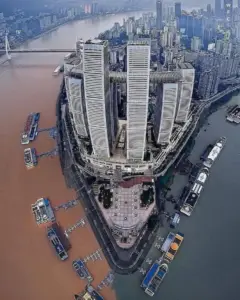Structural design is a vital part of any civil engineering undertaking. It involves creating and analyzing structures that can carry loads and withstand environmental conditions and forces. It needs technical skills, practical knowledge, and creativity to ensure that you come up with safe, sustainable, and efficient structures. It should also meet the expectations of the client and adhere to the regulations and codes. You have to make big calls in a short time which can compromise the project.Here are a few insights on navigating this process effectively.

1. Understand the Requirements
Prior to commencing any undertaking, it is imperative to gain a comprehensive grasp of the stipulations delineated by the client, the prerequisites of the location, and the coding specifications. Allocate adequate time to accumulate and assess all pertinent information, encompassing the designated function of the construction, the status of the terrain and foundation, accessibility and expenses associated with materials, as well as the anticipated strains and burdens. The social and environmental impacts and the legal constraints also play a big part. Knowing the requirements helps you define the objectives, scope, and criteria of your design to avoid the need for modifications or errors later.
2. Collaborate With Other Experts
Most civil engineering projects require input from multiple disciplines. Collaboration with architects and designers is vital from the inception of the schematic design process to the final project’s culmination. This ensures that the site’s arrangement and design harmonize seamlessly with the architectural concept.
Environmental specialists will tackle any ecological considerations and regulatory requirements, guiding the project through environmental impact evaluations and confirming adherence to environmental statutes. Also maintain an open channel of communication with the local authorities to expedite the process of acquiring permits and navigating local regulations and zoning restrictions.
3. Evaluate Risk and Safety
Right from the start, your project should always prioritize safety. You should constantly look for risks and find ways to mitigate them to guarantee the safety of the workers, users, and the public. Identify potential natural hazards like floods and earthquakes that could affect the project and find measures to keep them under control.
Contamination and hazardous materials are also a significant concern especially when working on brownfield sites which may have a history of industrial use. Implement effective remediation measures to ensure the project is safe.
4. Conduct Quality Checks
Quality assessments encompass a series of methodologies and protocols aimed at upholding project security and confirming its alignment with stipulated criteria. Over the project’s duration, it becomes necessary to perform assessments on computations, criteria, illustrations, and documents to ascertain their congruence. Additionally, the evaluation of the materials, systems, and structural components might be requisite to establish the structural feasibility.
5. Create a Maintenance Plan
Even after the project, the structure needs proper maintenance to keep it safe and reliable for that duration of its lifespan. It is an extensive process that involves preservation, repairing, and improving a structure to prevent or rectify damage, deterioration, or failure. There are three types of maintenance; preventive, corrective, and predictive. You need to implement a maintenance plan to match the durability, performance, and serviceability of the building.
Endnote
The choices made regarding your website have a substantial influence on the ultimate project outcome. Effectively partnering with fellow experts and adhering to stipulated criteria remains the sole route to achieve a project’s successful culmination. Abide by these suggestions, and satisfaction with the resultant product will be yours to enjoy.















